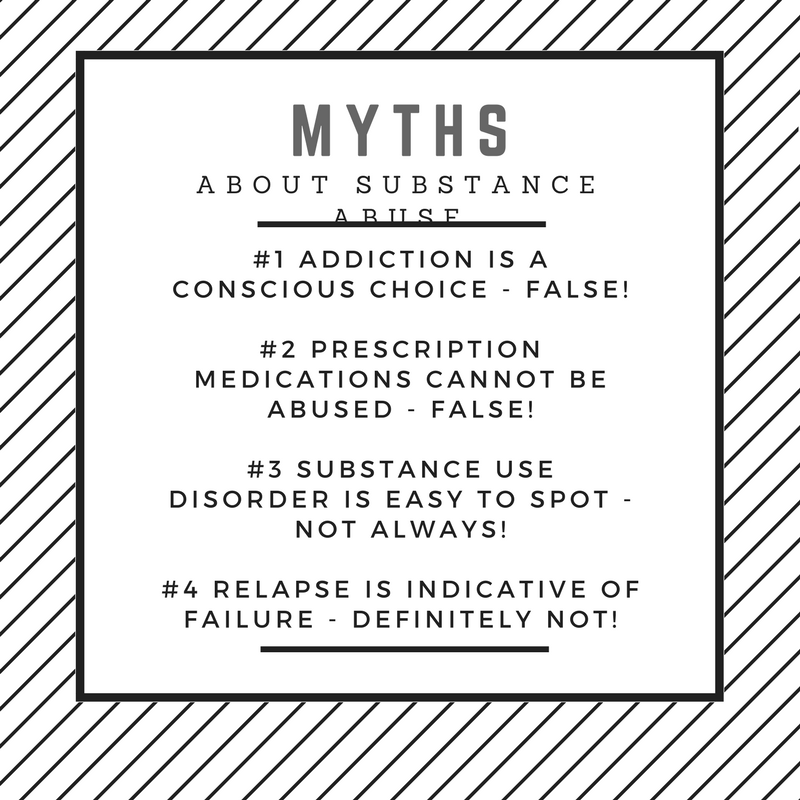
Dispelling Myths: Substance Use Disorder
Despite the prevalence of substance use disorder, misconceptions and misunderstandings are still attached to the disorder in a way that can impede recovery and acceptance. On a biological level, addiction is similar to other diseases as it disrupts the normal functioning of an organ, which in most cases of substance use disorder is the brain. This does not mean that this disorder doesn’t damage other parts of the body; however, since substance abuse can lead to many subsequent health issues and change behavior.
Although first consumption of a substance may start as controlled drug usage, substance use can create huge changes in an individual’s life before they even realize it. For those who have never suffered through substance use disorder, it is easy to misunderstand and simplify someone’s problem. The following are common myths that people have that might lead to misunderstandings regarding substance use disorder.
Myth #1: Addiction is a conscious choice.
Many people believe that addiction is conscious, believing that an individual who willingly started using drugs can easily stop. Although an individual may start using substances out of free will, drug use can easily take over a person’s life and highjack the reward systems in the brain. Substance usage and tolerance can develop to the point where an individual no longer feels like themselves or “normal.” The use develops into an obsession, and their bodies can begin to depend on the substance.
Myth #2: Prescription medications cannot be abused.
Being prescribed a medicine does not mean that it is safe from causing addiction. Just by taking medicine more frequently than prescribed, or in a different manner, you can increase your likelihood of addiction. Abusing prescription medications can cause serious widespread consequences like the opioid outbreak. On the other side of the spectrum, hard drugs are not the only substances that are highly addictive and tha can be abused; for example, alcohol use is considered acceptable and safe in our society, but is actually one of the most common
substances that can result in this disorder.
Myth #3: Substance Use Disorder is easy to spot in individuals.
People might use indicators such as socioeconomic status, or gender, to make an assumption about whether or not someone may or may not have substance use disorder. Like most other mental health disorders, substance use disorder can be found in any gender, status, or race. Some people associate certain behaviors with addiction like not being able to attend work, but addiction has many more symptoms and manifestations outside of working capacity. It can affect not only your relationships, but also your health and mental well-being.
Myth #4: Relapses are indicative of failure.
Relapses in addiction are common and part of the process of recovery; they should not be seen as failure, but as a stepping stone in treatment. Each time an individual is able to overcome a relapse and return to treatment, they are less likely to relapse again which improves
prognosis.
If you are struggling with substance use disorder or know someone who is, contact the professional team at Lifeline Connections for help! Substance use disorder is a serious medical condition that can be treated; visit www.Lifelineconnection.org or call 360.397.8246 for more information.
